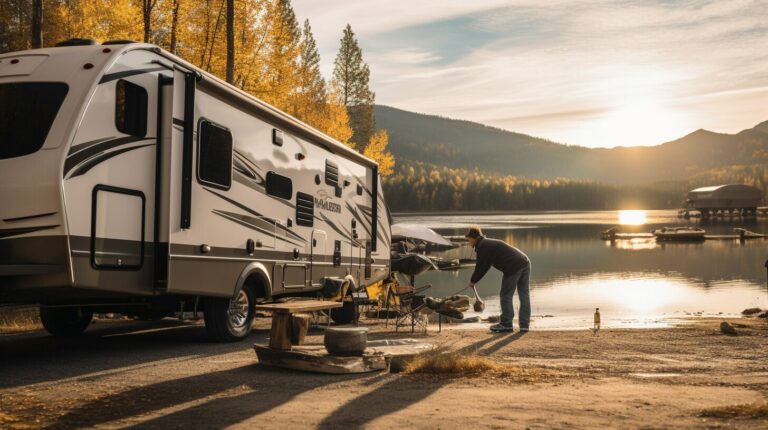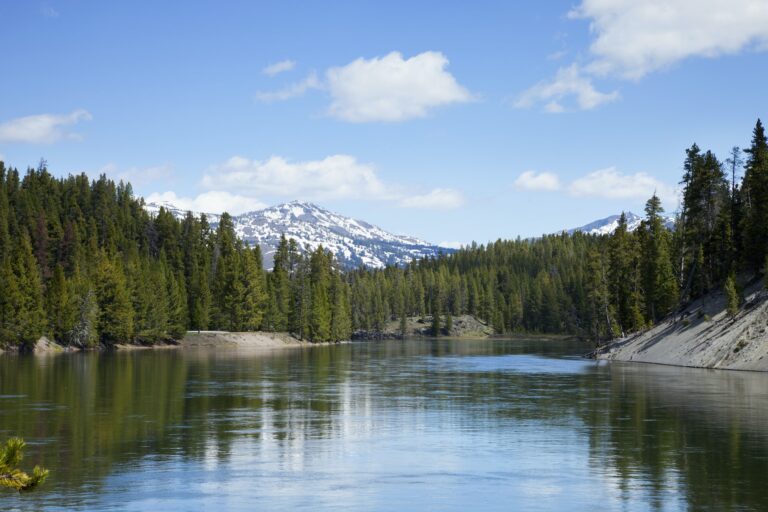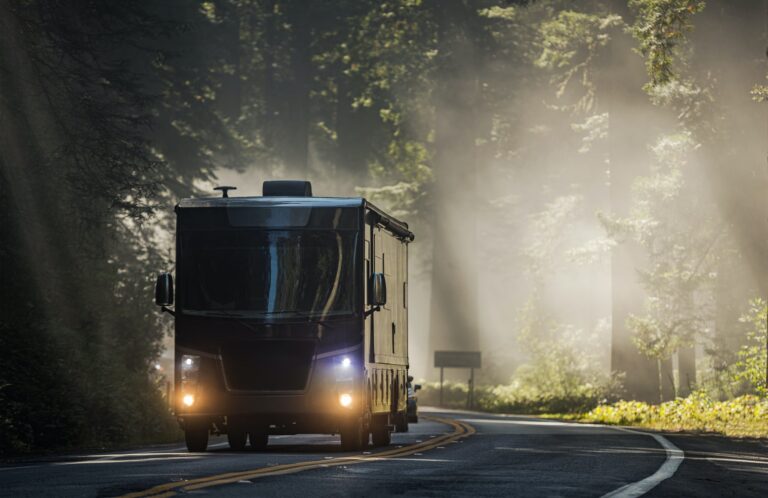Embarking on an RV adventure is an exciting way to explore the open road and experience new destinations. However, as with all forms of travel, accidents and mishaps can happen, which is why having the right RV insurance coverage options in place is essential.
RV insurance is specifically designed to protect your motorhome, camper, or RV from a range of risks that can occur on the road, including accidents, theft, and damage. Without adequate coverage, you could be left facing significant expenses or even losing your beloved vehicle.
In this article, we will explore different RV insurance coverage options that you can consider, compare policies from top providers, and provide answers to frequently asked questions about RV insurance.
Understanding RV Insurance Coverage Options
Recreational Vehicle (RV) owners have unique insurance needs that are different from those of a standard vehicle. RVs are not just a means of transportation but also a home on wheels. As such, it is important to have insurance coverage options that are specifically designed for RVs to protect against unexpected events such as accidents, theft, and natural disasters.
Here are some of the RV insurance coverage options that are available:
| Coverage Option | Description |
|---|---|
| Liability Coverage | This coverage provides protection if you are held responsible for causing damage or injury to others while operating your RV. It typically includes both property damage and bodily injury liability. |
| Collision Coverage | This covers the cost of repairs or replacement of your RV if you collide with another vehicle or object. It may also cover damages caused by potholes, fallen trees, or other road hazards. |
| Comprehensive Coverage | This covers damages to your RV that are not the result of a collision, such as theft, vandalism, or weather-related events like hail, windstorms, or flooding. |
| Uninsured/Underinsured Motorist Coverage | This coverage provides protection if you are involved in an accident with a driver who does not have enough insurance to cover the damages or who is uninsured altogether. |
Having recreational vehicle insurance or motor home insurance that covers your specific needs and budget is essential to ensure that you can fully enjoy your travels. Each type of coverage mentioned above can provide valuable protection and peace of mind while on the road.
Understanding RV Insurance Coverage Options
It is important to note that the level of coverage, deductibles, and premiums can vary depending on the insurer. Therefore, it is essential to compare different RV insurance policies to find the one that suits your needs.
In the following sections, we will provide more information on how to compare RV insurance policies, top RV insurance providers, additional coverage options, and frequently asked questions to help you make an informed decision about your RV insurance needs.
Comparing RV Insurance Policies
When shopping for RV insurance coverage, it’s important to compare policies from multiple providers. Here are some factors to consider when comparing RV insurance policies:
| Factor | Description |
|---|---|
| Coverage level | Make sure the policy provides adequate coverage for your RV and possessions. |
| Deductibles | The amount you pay out of pocket before the insurance policy kicks in. Higher deductibles may result in lower premiums. |
| Premiums | The cost of the policy. Compare quotes from multiple providers to find the best rate. |
| Discounts | Some providers offer discounts for safe driving, multiple policies, and other factors. |
| Customer service | Make sure the provider has a good reputation for customer service and handles claims efficiently. |
When comparing RV insurance policies, it’s important to find a balance between coverage and affordability. Look for a policy that provides the level of protection you need at a price you can afford. Keep in mind that the cheapest policy may not always be the best option if it doesn’t provide adequate coverage.
Top RV Insurance Providers
When it comes to protecting your RV, motorhome, or camper, it’s important to have the right insurance coverage. Here are some of the top RV insurance providers in the market:
| Provider | Key Features and Benefits |
|---|---|
| Progressive | Comprehensive coverage that protects your RV from damage, theft, and vandalism. Full-timer coverage for RVers who live in their vehicles full-time. Discounts for bundling your RV insurance with other policies. |
| Nationwide | Total loss replacement coverage that pays for a brand-new RV if yours is totaled within its first few years. Emergency expenses coverage that pays for lodging, transportation, and food if your RV is damaged or stolen while on a trip. Pet injury coverage that pays for veterinary expenses if your pet is injured in an RV accident. |
| Good Sam | 24/7 roadside assistance that covers towing, flat tire changes, fuel delivery, and more. Full replacement cost coverage that reimburses you for the full cost of your RV, even if it has depreciated. Personal effects coverage that pays for damaged or stolen personal items, such as electronics and clothing. |
These providers offer a range of coverage options, including liability, collision, and comprehensive coverage. To find the best RV insurance coverage for your needs and budget, compare the policies and premiums of each provider. Remember to factor in any discounts or special offers that may be available.
Additional RV Insurance Coverage Options
When it comes to protecting your RV and your adventures on the road, you may want to consider additional coverage options beyond the basics. Here are some additional RV insurance coverage options you might want to explore:
| Roadside Assistance | Provides help if you have a breakdown, flat tire, dead battery, or other problem while on the road. |
|---|---|
| Personal Property Coverage | Covers the contents of your RV, including electronics, appliances, and other personal items, in case of theft, damage, or loss. |
| Vacation Liability Coverage | Offers protection in case you accidentally damage someone else’s property or injure someone while parked at a campsite or RV park. |
Each of these coverage options can provide extra protection and peace of mind when traveling on the road. Keep in mind that not all insurance providers offer these options, so be sure to check with your RV insurance company to see what’s available.
Pro tip: When shopping for RV insurance coverage, make a list of the features and benefits that are most important to you, and don’t forget to ask about any discounts or special offers that may apply.
FAQ About RV Insurance Coverage Options
Here are some frequently asked questions about RV insurance coverage options:
How much RV insurance coverage do I need?
The amount of RV insurance coverage you need depends on several factors, including the value of your RV, your budget, and your level of risk. Generally, you should have enough liability coverage to protect your assets in case of an accident, and enough comprehensive and collision coverage to repair or replace your RV if it’s damaged or totaled.
What factors affect my RV insurance premiums?
The factors that affect your RV insurance premiums include your driving record, your credit score, the type and value of your RV, your location, and the coverage options you choose. Some providers may also offer discounts for things like completing an RV safety course or bundling your RV insurance with other policies.
How do I file a claim for RV insurance?
If you need to file a claim for RV insurance, you should contact your insurance provider as soon as possible. They will walk you through the process and help you submit any necessary documentation. It’s important to keep records of any damage or losses, and to cooperate fully with the insurance adjuster.
Are there any RV insurance coverage options that aren’t included in standard policies?
Yes, there are several RV insurance coverage options that aren’t included in standard policies but might be worth considering. These include roadside assistance, personal property coverage, and vacation liability coverage. You can ask your provider about these options and whether they’re available in your area.
Hopefully, these answers have helped you better understand RV insurance coverage options. If you have any more questions, feel free to contact your insurance provider or check out our resources page for more information.






